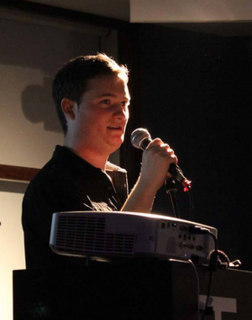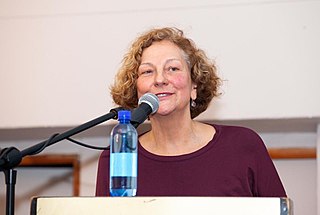Related Research Articles
Postcolonial literature is the literature by people from formerly colonized countries. It exists on all continents except Antarctica. Postcolonial literature often addresses the problems and consequences of the decolonization of a country, especially questions relating to the political and cultural independence of formerly subjugated people, and themes such as racialism and colonialism. A range of literary theory has evolved around the subject. It addresses the role of literature in perpetuating and challenging what postcolonial critic Edward Said refers to as cultural imperialism.

Half-caste is a term used for individuals of multiracial descent. It is derived from the term caste, which comes from the Latin castus, meaning pure, and the derivative Portuguese and Spanish word casta, meaning race. Terms such as half-caste, caste, quarter-caste and mix-breed were used by colonial officials in the British Empire during their classification of indigenous populations, and in Australia used during the Australian government's pursuit of a policy of assimilation. In Latin America, the equivalent term for half-castes was Cholo and Zambo.

Homi Kharshedji Bhabha is an Indian English scholar and critical theorist. He is the Anne F. Rothenberg Professor of the Humanities at Harvard University. He is one of the most important figures in contemporary postcolonial studies, and has developed a number of the field's neologisms and key concepts, such as hybridity, mimicry, difference, and ambivalence. Such terms describe ways in which colonised people have resisted the power of the coloniser, according to Bhabha's theory. In 2012, he received the Padma Bhushan award in the field of literature and education from the Indian government. He is married to attorney and Harvard lecturer Jacqueline Bhabha, and they have three children.
Moyez G. Vassanji is a Canadian novelist and editor, who writes under the name M. G. Vassanji. Vassanji's work has been translated into several languages. As of 2020, he has published nine novels, as well as two short-fiction collections and two nonfiction books. Vassanji's writings, which have received considerable critical acclaim, often focus on issues of colonial history, migration, diaspora, citizenship, gender and ethnicity.
William John Thomas Mitchell is an American academic. Mitchell is the Gaylord Donnelley Distinguished Service Professor of English and Art History at the University of Chicago. He is also the editor of Critical Inquiry, and contributes to the journal October.
Cultural cringe, in cultural studies and social anthropology, is an internalized inferiority complex that causes people in a country to dismiss their own culture as inferior to the cultures of other countries.
Helen M. Tiffin is an Adjunct Professor of English at the University of Wollongong, Australia, and an influential writer in post-colonial theory and literary studies.
Hybridity, in its most basic sense, refers to mixture. The term originates from biology and was subsequently employed in linguistics and in racial theory in the nineteenth century. Its contemporary uses are scattered across numerous academic disciplines and is salient in popular culture. Hybridity is used in discourses about race, postcolonialism, identity, anti-racism and multiculturalism, and globalization, developed from its roots as a biological term.
Robert Stam is an American film theorist working on film semiotics. He is a Professor at New York University, where he teaches about the French New Wave filmmakers. Stam has published widely on French literature, comparative literature, and on film topics such as film history and film theory. Together with Ella Shohat, he co-authored Unthinking Eurocentrism: Multiculturalism and the Media.

Arif Dirlik was a Turkish-American historian who published on historiography and political ideology in modern China, as well as issues in modernity, globalization, and post-colonial criticism. Dirlik received a BSc in Electrical Engineering at Robert College, Istanbul in 1964 and a PhD in History at the University of Rochester in 1973.

Elleke Boehmer, FRSL, FRHistS is Professor of World Literature in English at the University of Oxford, and a Professorial Governing Body Fellow at Wolfson College. She is an acclaimed novelist and a founding figure in the field of Postcolonial Studies, internationally recognised for her research in colonial and postcolonial literature and theory. Her main areas of interest include the literature of empire and resistance to empire; sub-Saharan African and South Asian literatures; modernism; migration and diaspora; feminism, masculinity, and identity; nationalism; terrorism; J.M. Coetzee, Katherine Mansfield, and Nelson Mandela; and life writing.
Postcolonialism is the critical academic study of the cultural, political and economic legacy of colonialism and imperialism, focusing on the impact of human control and exploitation of colonized people and their lands. More specifically, it is a critical theory analysis of the history, culture, literature, and discourse of imperial power.

Postcolonial international relations is a branch of scholarship that approaches the study of international relations (IR) using the critical lens of postcolonialism. This critique of IR theory suggests that mainstream IR scholarship does not adequately address the impacts of colonialism and imperialism on current day world politics. Despite using the language of post-, scholars of Postcolonial IR argue that the legacies of colonialism are ongoing, and that critiquing International Relations with this lens allows scholars to contextualize global events. By bridging postcolonialism and International Relations, scholars point to the process of globalization as a crucial point in both fields, due to the increases in global interactions and integration. Postcolonial IR focuses on the re-narrativization of global politics to create a balanced transnational understanding of colonial histories, and attempts to tie non-Western sources of thought into political praxis.
The Empire Writes Back: Theory and Practice in Post-Colonial Literatures is a 1989 non-fiction book on postcolonialism, penned by Bill Ashcroft, Gareth Griffiths and Helen Tiffin. The Empire Writes Back was the first major theoretical account of a wide range of postcolonial texts and their relationship with bigger issues of postcolonial culture, and is said to be one of the most significant and important works published in the field of postcolonialism. The writers debate on the relationships within postcolonial works, study the mighty forces acting on words in the postcolonial text, and prove how these texts constitute a radical critique of Eurocentric notions of language and literature. First released in 1989, this book had a second edition published in 2002.
Jenny Sharpe is a professor of English and Comparative Literature at UCLA. Her research focuses on issues of postcolonial studies, Caribbean literature, theories of allegory, the novel, rethinking models of memory and the archive, and the effect of the Middle Passage. In 2020, she began serving as the Chair of Graduate Studies in UCLA's English Department.
Stephanos Stephanides is a Cypriot-born author, poet, translator, critic, ethnographer, and documentary film maker. In 1957 he moved with his father to the United Kingdom and since then he has lived in several countries for more than 34 years. He returned to Cyprus in 1991 as part of the founding faculty of the University of Cyprus where he holds the position of Professor of English and Comparative Literature. Stephanides’ dominant and literary language is English, and he is also fluent in Greek, Spanish and Portuguese. His early migration from Cyprus to the United Kingdom and subsequent work and travel in many countries has been influential in shaping the transcultural character of his work. As a young lecturer at the university of Guyana, he became deeply interested in Caribbean literary and cultural expression and his anthropological work with the descendant of Indian indentured labourers in Guyanese villages and sugar plantations marked the beginning of a lifelong interest in Indian culture and the Indian diaspora, his creative and academic writing span issues of cross-culturality, dislocation and migration. Hail Mother Kali deals with issues of a broken postcolonial society of racially mixed Indian and African descendants in Guyana.

Anthony James Carrigan was a British academic noted for his pioneering work in combining the theoretical paradigms of postcolonialism and environmental studies.
Ato Quayson is a Ghanaian literary critic and Professor of English at Stanford University. He was formerly a Professor of English at New York University (NYU), and before that was University Professor of English and inaugural Director of the Centre for Diaspora Studies at the University of Toronto. His writings on African literature, postcolonial studies, disability studies, urban studies and in literary theory have been widely published. He is a Fellow of the Ghana Academy of Arts and Sciences (2006) and the Royal Society of Canada (2013), and in 2019 was elected Corresponding Fellow of the British Academy. He was Chief Examiner in English of the International Baccalaureate (2005–07), and has been a member of the Diaspora and Migrations Project Committee of the Arts and Humanities Research Council (AHRC) of the UK, and the European Research Council award grants panel on culture and cultural production (2011–2017). He is President of the African Studies Association.
Vijay Chandra Mishra is an academic, author and cultural theorist from Fiji. He is currently a professor at Murdoch University, Australia.

Melissa Steyn is a South African academic based at the University of the Witwatersrand, Johannesburg. Prior to moving to Johannesburg in 2011, she taught at the University of Cape Town.
References
- ↑ "Gareth Griffiths".
- ↑ UWA profile
- 1 2 "Griffiths, Gareth, FAHA". Archived from the original on 25 March 2012. Retrieved 21 June 2011.